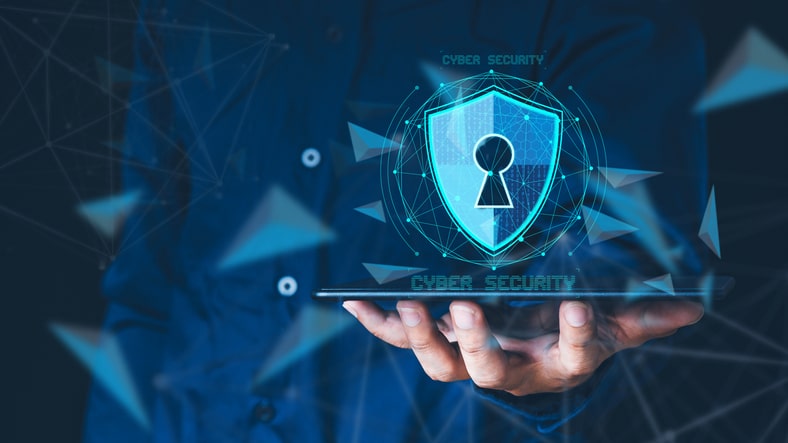Dallas Cybersecurity Trends Businesses Need To Be Concerned About
Ever since the COVID-19 pandemic forced everyone into the virtual realm for work and business, the risk of cyberattacks continues to grow. According to Cyber Defense Labs CEO Robert Anderson, companies in Dallas have been affected on a large scale.
The severity and frequency of the attacks are really off the hook. The cybersecurity trends are worrying, and now more than ever, it's crucial that companies do something out of the ordinary to fight cyberwar.
At Velocity IT, we reached out to industry experts and leaders with a proven record and background in cybersecurity. We wanted to find out their thoughts concerning the state of cybersecurity in Dallas businesses. We sought answers to these four questions:
- How have cyber threats evolved over the last 12 months?
- What lessons can be learned from the biggest cyber-attacks in recent history?
- What will cyber-attacks look like in the future?
- What are three pieces of advice for organizations looking to get ahead of future cyber-attacks?

How Have Cyber Threats Progressed Over the Last 12 Months?
Cyberattacks have evolved significantly over the last 12 months, happening more frequently on a larger scale than they did before.
For example, 2021 marked one of the most significant cyberattacks in history, affecting the Colonial Pipeline, Kaseya, Brenntag, and JBS Foods. A mid-year report from Fortinet on cyber threats showed that cybersecurity threats on all fronts are increasing at an alarming rate.
Ransomware is the Greatest Threat
Ransomware is the largest threat, with over 300 million ransomware attacks reported last year. Cybersecurity Magazine says this form of cyberattack is the most profitable, worth approximately $6 trillion globally.
As more companies continue to pay out the ransom amount, they make the attacks lucrative, causing more ransomware groups to launch such stunts. The SonicWall report terms 2021 as the worst year for ransomware it has ever recorded.
Sadly, ransomware groups have now found a way to encrypt backups. Even with companies being able to restore their backups, ransomware groups still steal the data before encrypting it and holding it hostage for a ransom payment. Companies are forced to part with the demanded amount to preserve their customers' confidential data and intellectual property.
Another disturbing fact from the report is that ransomware also affects the educational sector. In three out of six months during the first half of 2021, businesses in the education sector experienced over 10 times more ransomware attacks than other businesses. Schools are soft targets because they don't invest enough in highly proactive security measures to protect their environment.
The Use of Remote Access Software on the Rise
Lately, it has emerged that threat actors use existing remote access software as an entry point. For example, they use a compromised account and silent installers for widely known remote access software. They usually deliver this through a convincing malicious email. Once they install the software, they access the compromised system and take over.
Undeniably, cybersecurity is warfare with cybercriminals always looking for vulnerabilities to exploit. It's a game of measures and countermeasures. Security experts have to counter every weakness cybercriminals find with additional security.
What Lessons Can Businesses Learn from the Biggest Cyberattacks in Recent History?
One of the biggest lessons to learn from large-scale cyberattacks is the importance of proactive IT governance, regardless of company size. They must implement practical security measures to protect their business and confidential data. Technologies like multi-factor authentication are easy to implement and can spell the difference between a failed and a successful cybersecurity attack.
SolarWinds, a software development company, recently experienced a cyberattack targeting its Orion software product. The attack remained undetected for months, having been distributed through a supply-line attack model. Here, the attackers planted malicious code into one of the software updates to the product.
The attack demonstrates that regardless of how high companies build their security walls, they need to prepare for when attackers breach those walls. They must teach employees to prevent breaches since they're the weakest link to cyberattacks.
Another lesson is that companies must adopt a multi-faceted approach to cybersecurity. End-user training is one of the most crucial aspects among the many layers of cybersecurity. It's imperative to make employees aware of the business's current threats and the signs they shouldn't ignore.
What Will Cyberattacks Look Like in the Future?
The future of cybersecurity best fits the description, "The Quick and the Dead." That's to say that the main trend is that cybersecurity will become the most crucial aspect of running a business. Cyberattacks will continue to become more frequent, with more significant consequences as time goes on.
The intelligence that goes into cyberattacks will also evolve and become more sophisticated and harder to detect. Businesses will need to step their game up and improve their security posture if they hope to protect themselves from these threats moving into the future.
Evolving Technology Means New Forms of Cyberattack
Technology is always advancing to meet its next goal. As the changes happen, they open new pathways for threat actors, a cat and mouse game that will continue into the foreseeable future.
Security experts agree that companies must adjust quickly to the changing landscape of cybersecurity measures to survive. Cybercrime is profitable and will persist into the future as attacks become more sophisticated.
Additionally, cybersecurity will become the cornerstone of every business process, application, operating system, and policy. It will encompass all business aspects, becoming the standard by which companies survive or crash.
The Importance of Partnering with Cybersecurity Experts
It's high time that companies partner with dedicated MSPs that offer proactive and holistic solutions along with their standard services. They also should advise on the benefits of cyber insurance to ensure companies get the coverage they need to remain protected.
The federal government should also step in to pass legislation that encourages companies to implement the proper level of security. An excellent place to start would be eliminating penalties and fines for businesses that have already attempted to enhance their security.
For example, Connecticut recently passed legislation that provides special incentives for companies affected by cybercrime, assuming they had an MSP to install the proper security level. The legislation encourages companies that have installed certain cybersecurity protections to avoid penalties in case of data loss or breach.
Three Pieces of Advice for Organizations Looking to Get Ahead of Future Cyberattacks
Homeland Security Today reports that there has been a 63% increase in cybercrime since the pandemic. Cyberattacks' potential scope and impact on businesses can be staggering, leading to chaos or catastrophic damage to economic operations and critical infrastructure. Many businesses have succumbed to malicious attacks by cybercriminals.
Businesses that want to get ahead of cyberattacks and adequately protect themselves should implement baseline security measures within their organizations as soon as possible. Unfortunately, many companies don't take the necessary steps to secure their infrastructure and hence are vulnerable to disruption and damage.
The good news is that they can take steps to reduce exposure to potential ransomware attacks while lessening the recovery time and resulting losses. Several steps exist that companies can take to improve their overall security posture. These could be your first and last line of defense against cybercrime.
Secure Their Hardware
Companies must ensure they use the latest security patches and implement complicated passwords. Whenever possible, they must use 2FA and ensure they activate BitLocker device encryption, especially if they use Windows 10.
Additionally, it's crucial to enable remote wiping of mobile devices that get lost or fall into the wrong hands to protect the data therein.
Data Backup and Encryption
Companies must prevent physical access to sensitive data and render it useless if it falls into the wrong hands. Data encryption is the best approach to preventing data breaches as it makes information unavailable in case hackers access it.
Train Employees
Employees are often the weakest cybersecurity link in most companies. It's crucial to conduct ongoing training to maintain a high awareness of cyber threats. Businesses should consider purchasing a cybersecurity training service that automatically sends out fake phishing attempts to test the employees' level of cybersecurity awareness.
Their response forms an excellent basis for training. A practical and well-thought-out cybersecurity incident response plan within an organization minimizes damage after an attack.
Other recommendations by cybersecurity experts in the fight against cybersecurity are:
- Performing network security scans periodically to establish the devices attached to the network and identify any existing security loopholes
- If the security measures fail to work, invest in cyber insurance for business continuity. If a company falls prey to a ransomware attack, cyber insurance will help t recover by providing financial support to take care of the issue quickly.
- Additional security layers like zero access policies, email security, firewall security, among others
Most importantly, it's crucial to partner with an experienced managed service provider for cybersecurity services. At Velocity IT, we're the premier technology resource for small and mid-sized businesses in all industries in Dallas-Fort Worth Metroplex. Contact us especially in the Coppell area, today to schedule a consultation on how to improve your business cybersecurity efforts.



